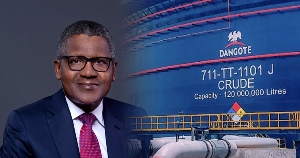Since the beginning of this year, the Federal Government has been battling with fuel scarcity and the incessant plundering of Nigeria’s crude oil by vandals, Okechukwu Nnodim writes
Crude oil theft, pipeline vandalism and the persistent scarcity of Premium Motor Spirit, popularly called petrol, are the major challenges that characterised Nigeria’s oil and gas sector in 2022.
Although there had been some positive outcomes in terms of crude oil output from Nigeria in the last two months, the country’s oil production suffered a severe crash between January and September this year due to massive oil theft in the Niger Delta region.
In fact, oil production crashed to as low as 937,766 barrels per day in September, the lowest output in several years. The country consistently missed the 1.8 million barrels per day monthly oil production quota approved by the Organisation of Petroleum Exporting Countries.
Nigeria is a long-standing member of OPEC and the country’s low oil production kept denying it millions of dollars monthly. This was despite the hike in global crude oil prices, following the military invasion of Ukraine by Russia in February.
Data sourced from the Nigerian Upstream Petroleum Regulatory Commission showed the repeated monthly decline in crude oil production between January and September.
Nigeria pumped 1.39 million barrels per day in January 2022, but this dropped to 1.26mbpd in February, and further reduced to 1.24mbpd in March.
The country’s oil production continued its southward dip in April, dropping to 1.22mbpd. It crashed further to 1.02mbpd in May, before moving up marginally to 1.16mbpd in June.
But the marginal increase in June was not sustained, as oil output dropped to 1.08mbpd in July, it crashed further to 0.97mbpd in August, and eventually plunged to its all-time lowest of about 0.94mbpd in September.
However, the nation’s oil output picked up marginally to 1.01mbpd in October. The increase was sustained in November, as crude oil production rose to 1.18mbpd last month.
The two consecutive increase in oil production was occasioned by the enhanced interventions by law enforcement agencies and the deployment of a private pipelines surveillance firm by the Nigerian National Petroleum Company Limited.
“Our security agencies should pay great attention to the country’s oil production,” the President, Petroleum Retail Outlet Owners Association of Nigeria, Billy Gillis-Harry, stated in his reaction to the development.
He told our correspondent that pipelines were national assets, adding that “our economy depends on the production of crude oil, regardless of what anybody is saying with respect to earnings from solid minerals, agriculture and other sectors.”
Gillis-Harry noted that “the size of dependence of our daily economic activities is almost equal to the petro-dollars which are produced from the Niger Delta.”
$1.9bn monthly oil losses
In a television interview early this month, the Chief Upstream Investment Officer, NNPC Upstream Management Services, Bala Wunti, said Nigeria was losing an estimated 700,000 barrels of crude oil daily, before the recent recovery began about two months ago.
He said, “From our records, before we recovered, we were losing 700,000bpd translating to 21 million barrels per month, and if you consider an average price (of crude oil) this year at $90/barrel, that will translate to somewhere around $1.8bn or $1.9bn losses that we suffered.”
He explained that oil theft due to vandalism stalled production and the delivery of crude oil from many terminals in the Niger Delta region.
“I think the key question to ask is where were Forcados, Brass Terminal, and where was Bonny in the Force Majeure? The reason is simply that we were unable to deliver crude to those terminals,” Wunti stated.
He added, “And why were we not able to deliver crude to those terminals? It is simply because of the security vulnerability. As I speak to you, Brass is in Force Majeure, Bonny is in Force Majeure. That is about 300,000 barrels deferred already.
“We have been working hard with the private security contractor to return the Trans-Niger Pipeline, we have succeeded to some extent but not where we want to be. We are hoping we will open Bonny very soon.
“The security situation is now restored together with certain activities that have been carried out to revamp what we see in Forcados. Forcados is back producing, Bonny will soon be back.
“Yes, indeed we are back, but up till today, one of our major trunk lines we can’t use because of security. Trans Forcados is back, Trans Escrarvos is back, Trans Remos is back. Even as I speak to you today, we are still having some of those volumes.”
Double revenue loss
Commenting on the performance of the sector in 2022, an industry expert and National Public Relations Officer, Independent Petroleum Marketers Association of Nigeria, Chief Ukadike Chinedu, said Nigeria was bleeding from double oil industry losses.
He said the first industry loss was caused by the massive oil theft in the Niger Delta, while the second had to do with the humongous spending on PMS subsidy by the Federal Government through NNPC.
He told our correspondent that these challenges had marred the progress that should have been made in the sector this year, stressing that it had been very tough for the NNPC to deliver efficiently because of these concerns.
“You can’t be losing millions of dollars to oil theft and at the same time be spending billions of naira as subsidy on petrol and not feel the pain. The country is bleeding from double losses as far as the oil sector is concerned,” Ukadike stated.
He added, “That is why it is important for NNPC to boost its security of crude oil pipelines, and work with security agencies to protect these assets. However, I’m aware that they’ve also contracted a private firm to support in pipeline surveillance.”
Private pipelines surveillance
Around the first quarter of this year, the NNPC contracted the services of a private pipelines surveillance firm to further protect the country’s oil assets.
The firm, Tantita Security Services Nigeria Limited, is led by Government Ekpemupolo, popularly known as Tompolo.
In his address at the Legislative Transparency and Accountability summit in Abuja last month, the Group Chief Executive Officer, NNPC, Mele Kyari, confirmed and justified the decision of the oil company to engage the oil pipeline surveillance team.
Business News of Thursday, 29 December 2022
Source: www.punchng.com













